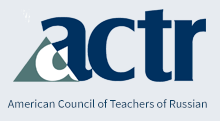Russian Language Journal
Keywords
pedagogy and education, Russian language teaching, active learning
Abstract
This article contributes to two recent discussions in pedagogy and education, namely, the impact of the participatory approach (Jenkins et al., 2009; Yowell & Rhoten, 2009) on learning and the benefits of student active learning (Sokolova et al., in press; Spasova & Welsh, 2020). The participatory approach incorporates texts and tasks on the topics of interest that are relevant to students’ daily lives and potential workplaces. Student active learning builds upon the idea that “L2 learners must engage in classroom activities that allow them to be active learners rather than passive listeners” (see Nesset et al., this volume). This idea is closely connected with the flipped-classroom approach (Abeysekera & Dawson, 2015; Strelan et al., 2020), in which traditional lecture content is moved out of the classroom, thereby freeing up valuable classroom time for student active learning tasks.
Recommended Citation
Sokolova, S., Rogatchevski, A., Bjørklund, K., Lavén, D. H., & Sverdrupsen, H. (2022). The Participatory Approach and Student Active Learning in Language Teaching: Language Students as Journalists and Filmmakers. Russian Language Journal, 72(1). https://doi.org/10.70163/0036-0252.1285


